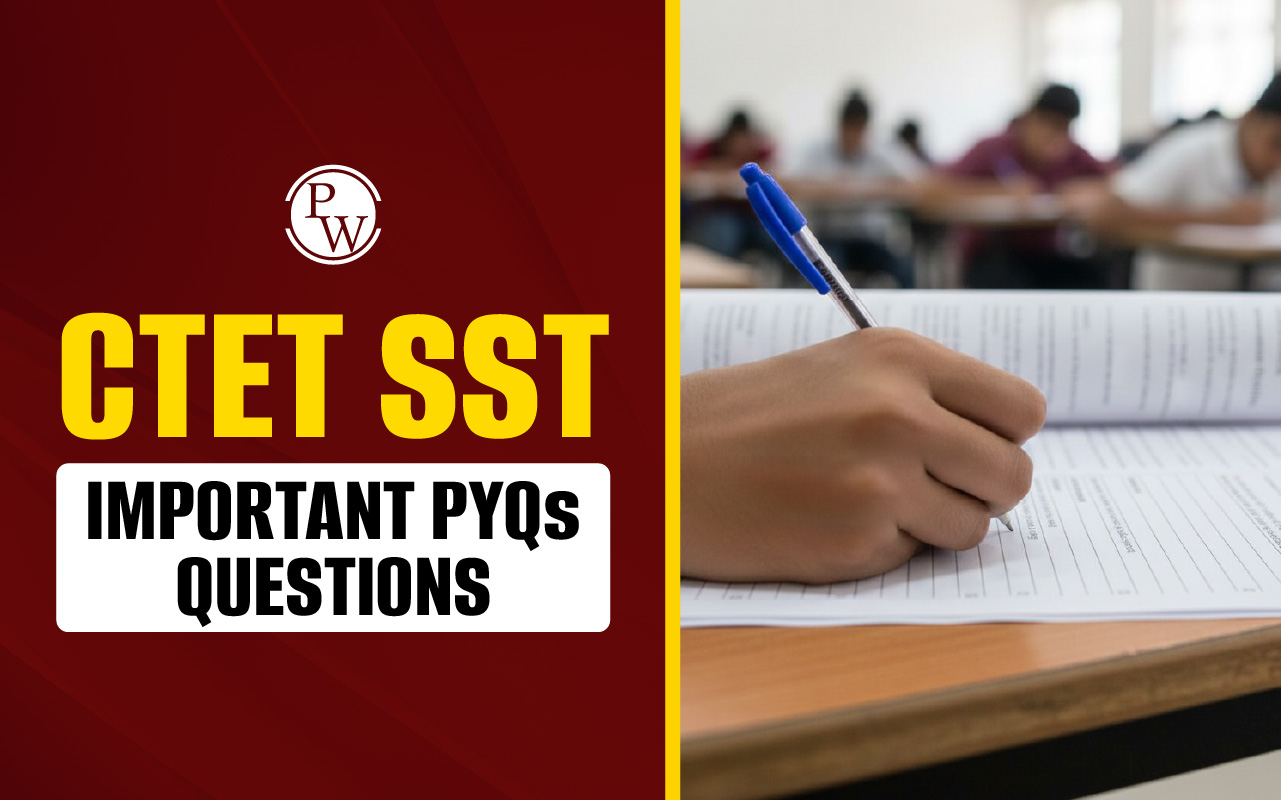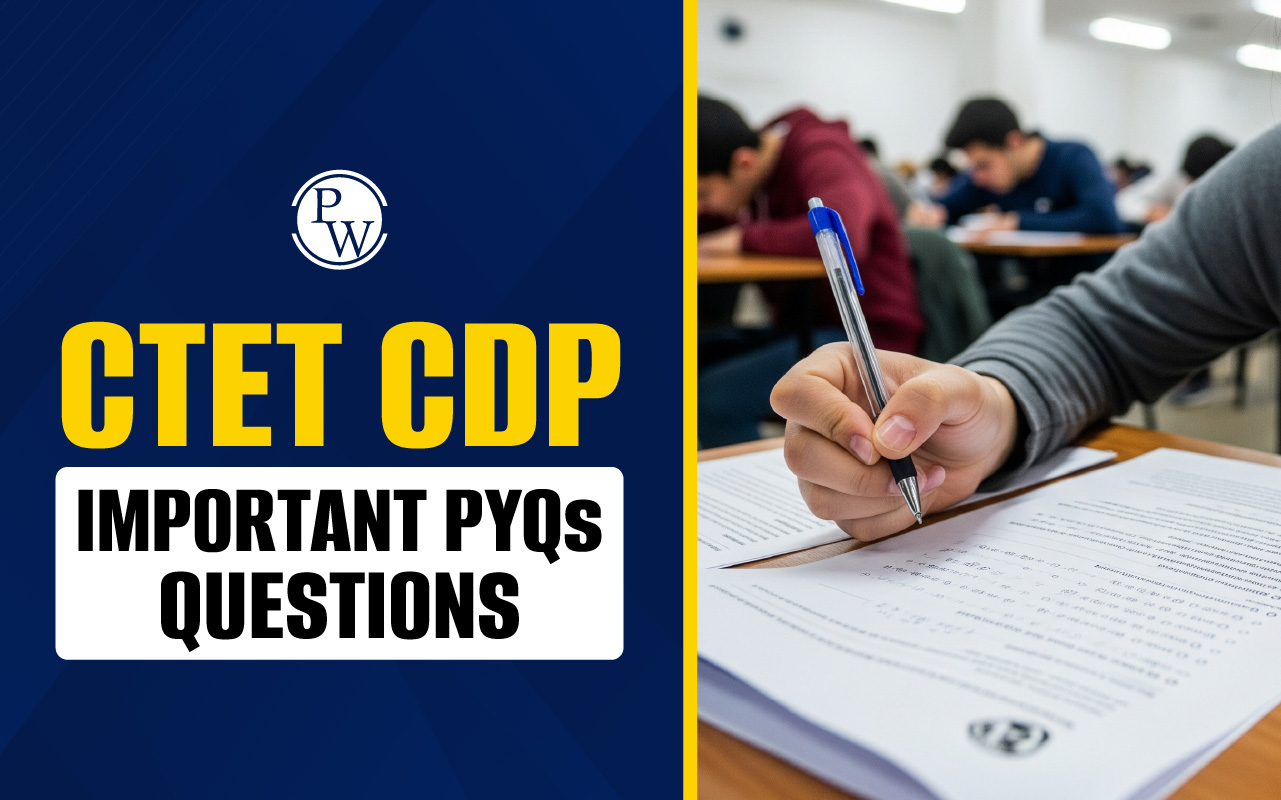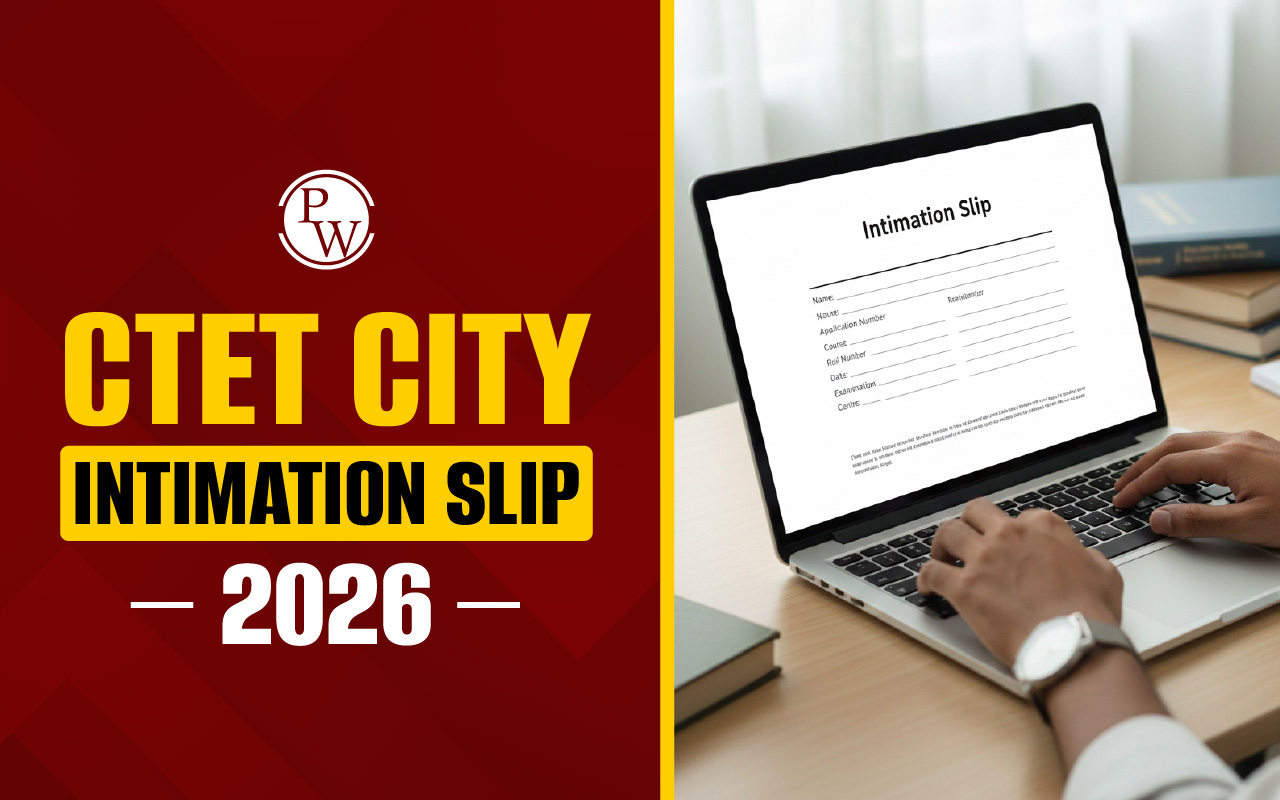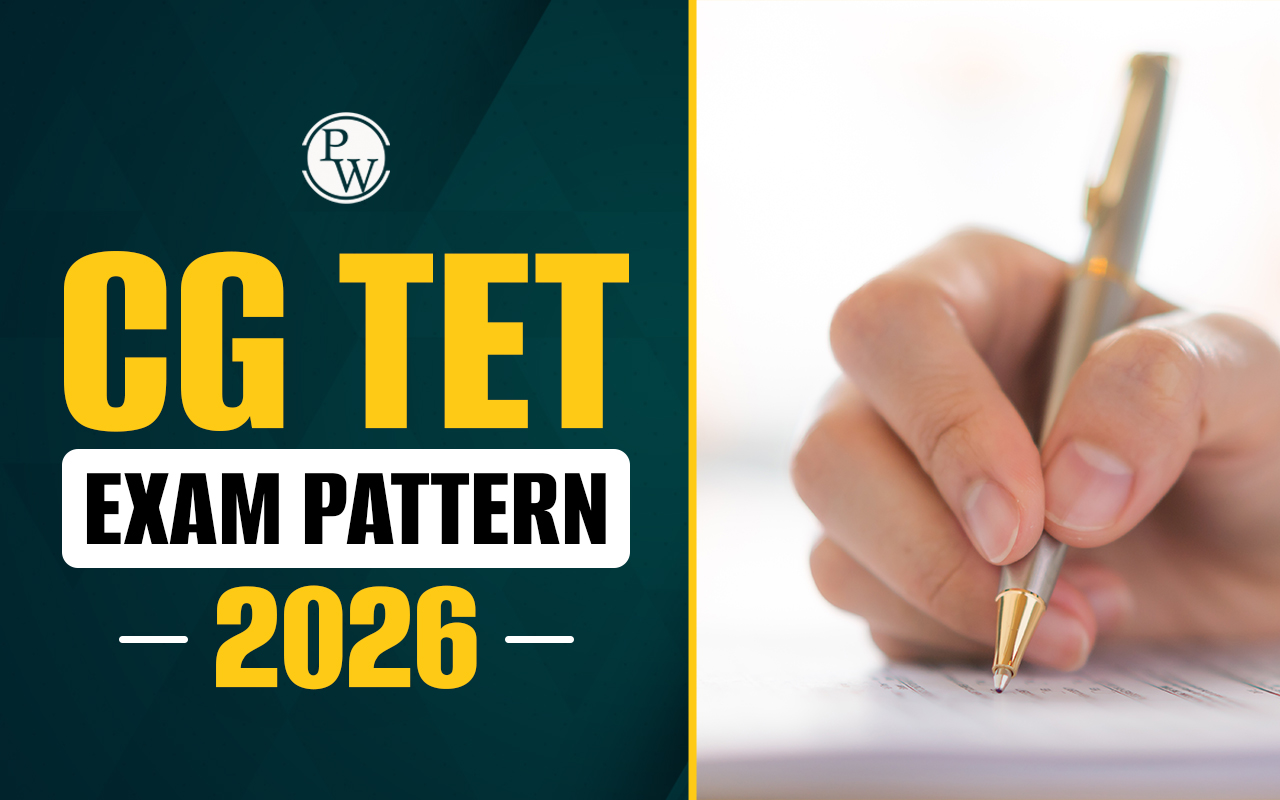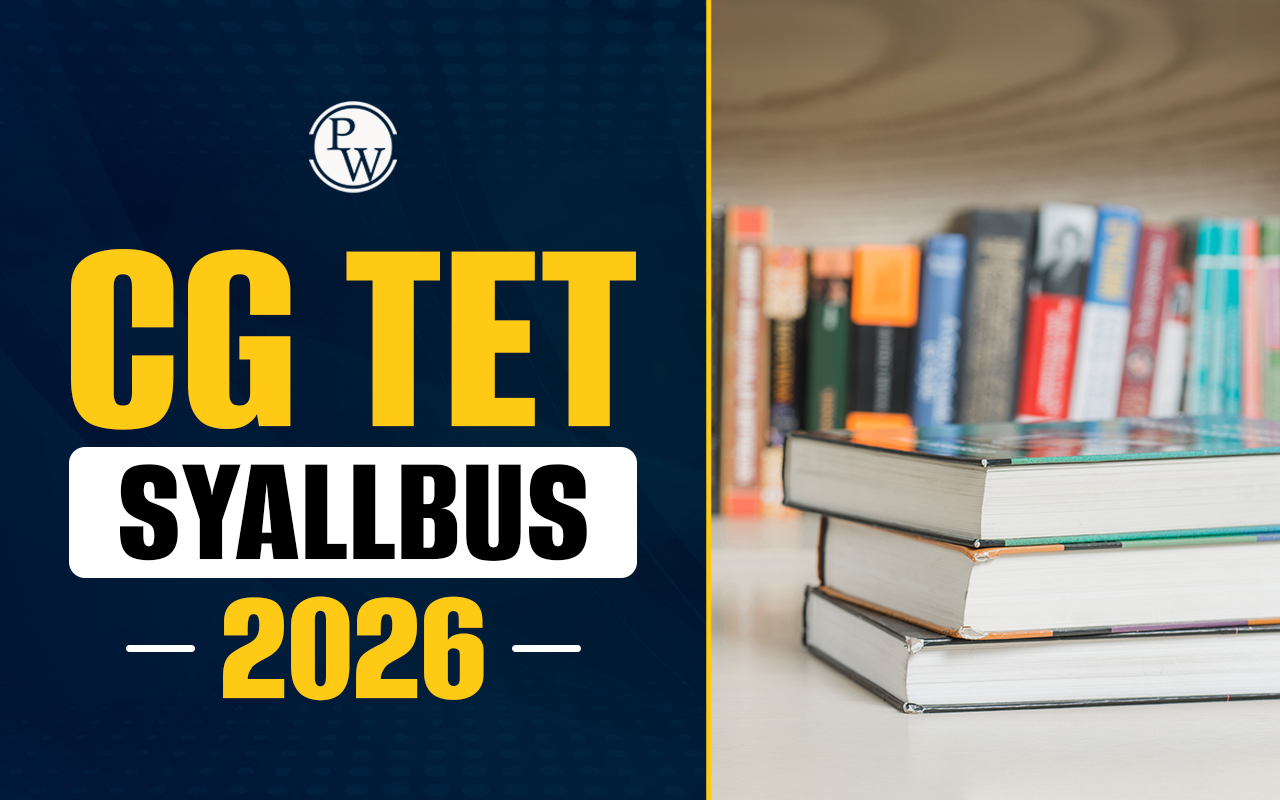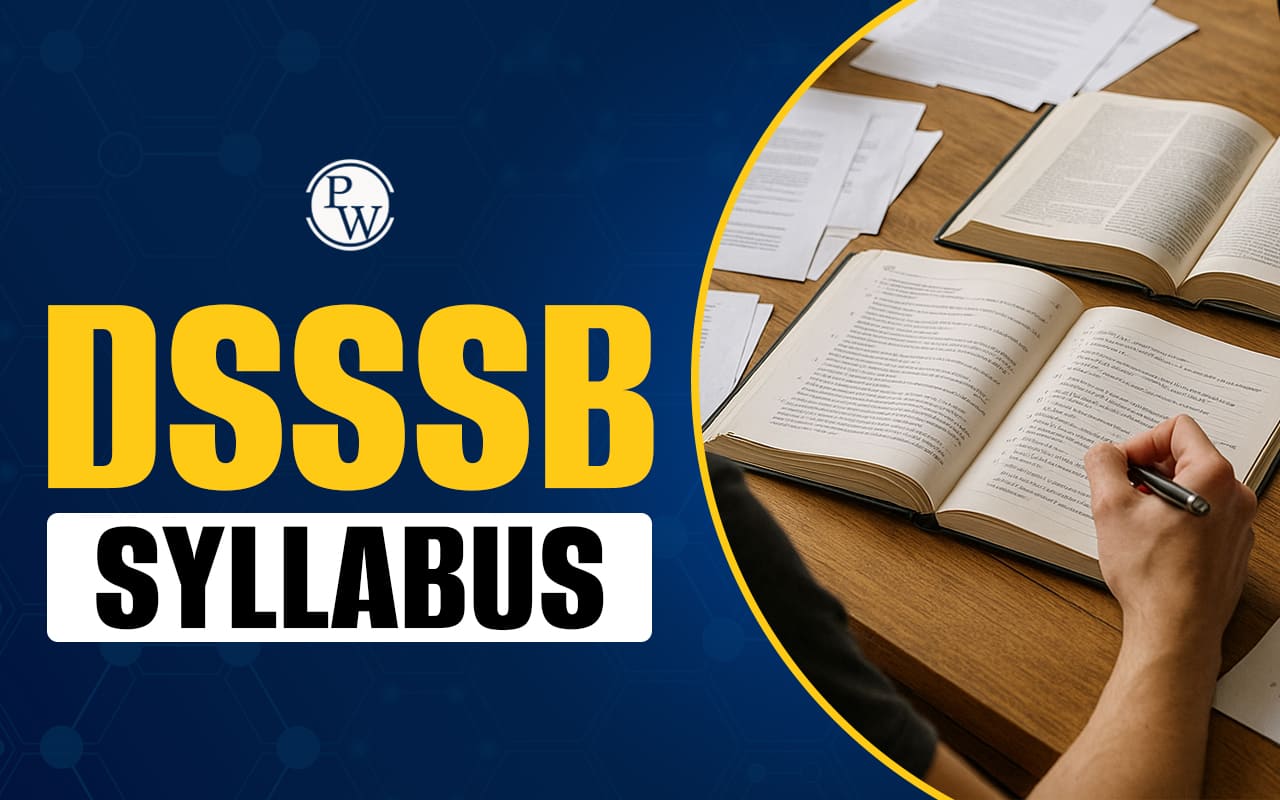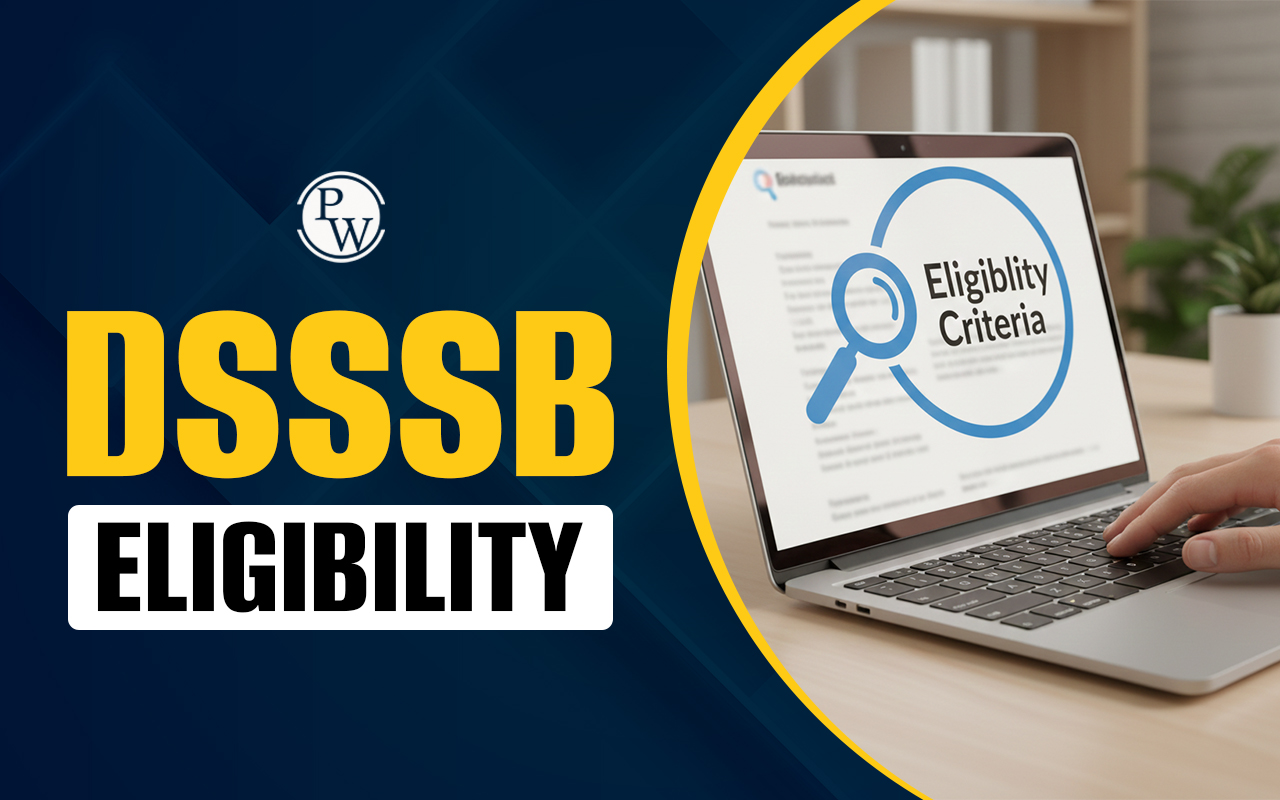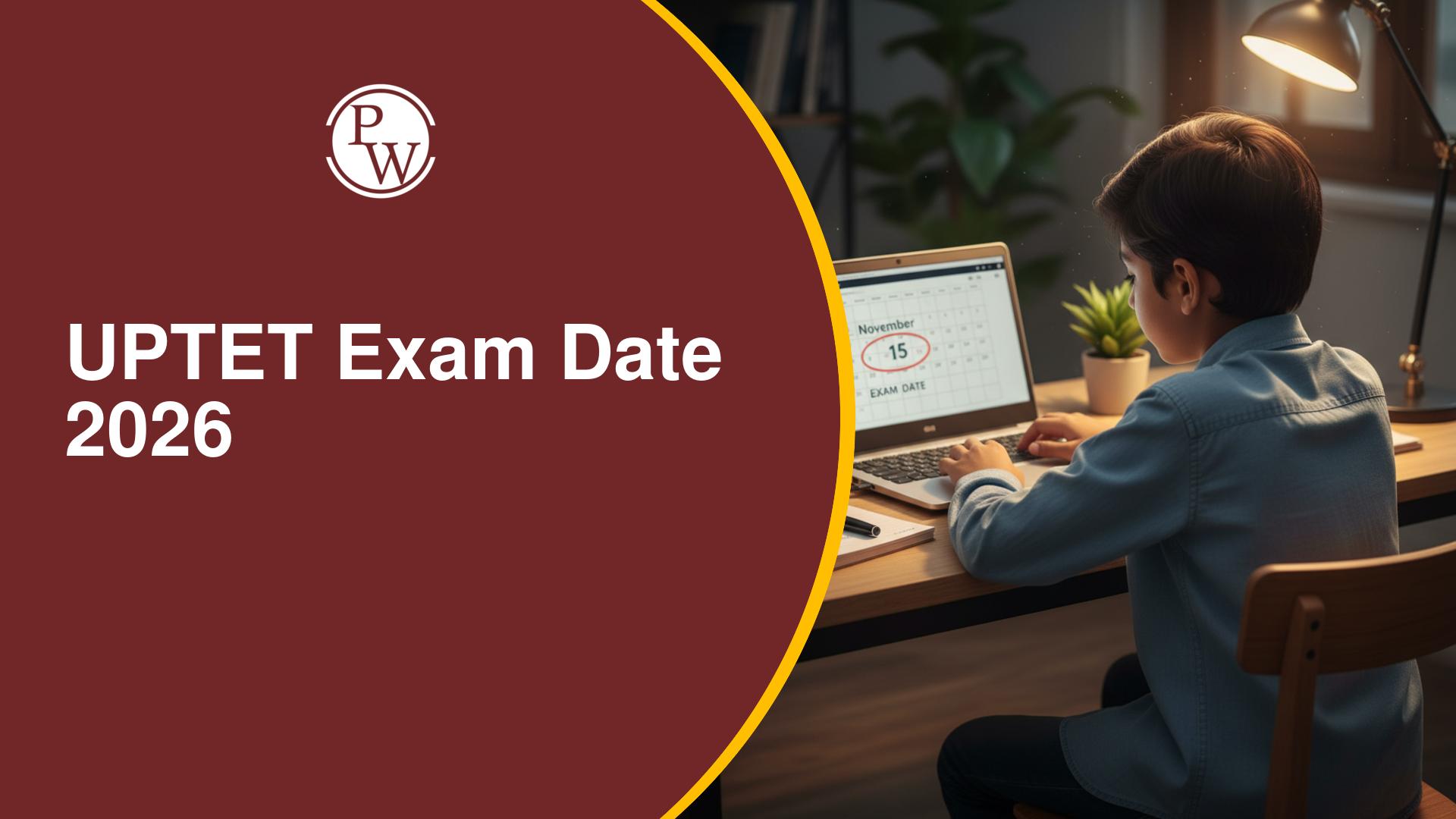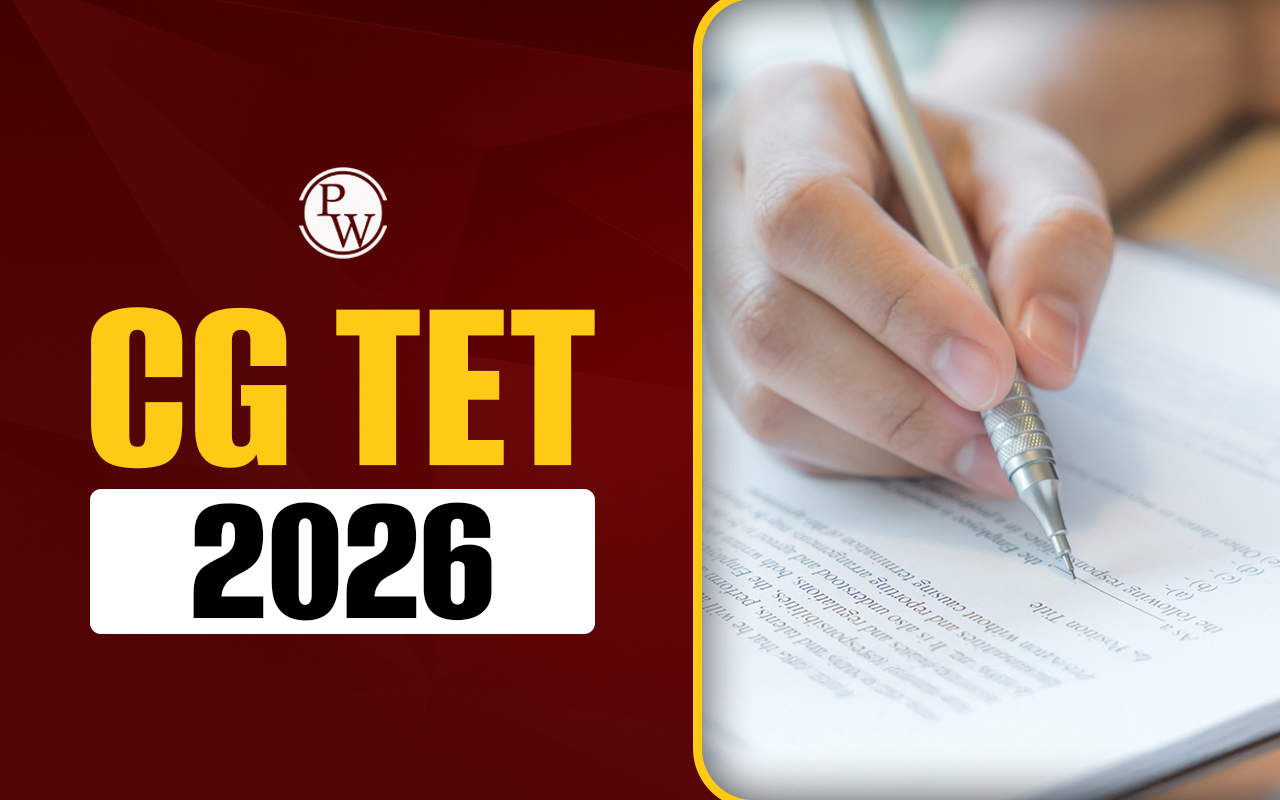
WB TET Syllabus 2023 : The West Bengal TET (Teacher Eligibility Test) syllabus for Primary Teachers is available by the West Bengal Board of Primary Education (WBBPE) through its official website. Familiarising yourself with the West Bengal TET Syllabus 2023 is essential to comprehend the depth and breadth of the examination's content. Candidates can easily access the WB TET Syllabus 2023 and the exam pattern for Paper-I through the provided link in this article. Detailed information and relevant links related to the West Bengal TET Syllabus for Primary Teachers are also available for reference.
WB TET Syllabus 2023
WB TET Syllabus 2023, specifically for Paper-I, has been officially released by the West Bengal Board of Primary Education. Candidates who intend to take the West Bengal TET Exam in 2023 are encouraged to initiate their preparation promptly. The complete WB TET Syllabus 2023 Paper-I can be found in the subsequent sections of this article for the convenience of candidates. Candidates must seize this golden opportunity presented by WB Primary TET 2023 by thoroughly and effectively preparing for the examination.WB TET Syllabus 2023 Overview
The West Bengal Board of Primary Education (WBBPE) has recently released the comprehensive and updated WB Primary TET (Teacher Eligibility Test) for the Primary Level Exam. This announcement was made in conjunction with the official notification. Individuals aspiring to pursue a career in the teaching sector under WBBPE must take the WB TET Exam. To perform well in this eligibility test, it is essential to thoroughly understand the WB Primary TET Syllabus and Exam Pattern for 2023, which applies to both Paper 1 (for classes 1 to 5) and Paper 2 (for classes 6 to 8). This article provides a detailed insight into the WB TET Primary Syllabus 2023, including the examination pattern, marking scheme, and subject areas.| WB TET Syllabus 2023 Overview | |
| Organisation | West Bengal Board of Primary Education (WBBPE) |
| Name of Examination | WB Primary TET 2023 Exam |
| Exam Level | State Level |
| WB Primary TET Exam Date 2023 | 10th December 2023 |
| Registration Dates | 14th September to 04th October 2023 |
| Maximum Marks | 150 marks (for each paper) |
| Duration of WB Primary TET Exam | 3 hours (for each paper) |
| Type of Questions | Multiple Choice Questions |
| Mode of Exam | Offline |
| Marking Scheme | 1 mark for each correct answer |
| Negative Marking | No negative marking for wrong answers |
| Official website | www.wbbpe.org |
WB Primary TET Syllabus 2023 for Paper 1
To excel in the upcoming WB TET 2023 examination, it is imperative for candidates to grasp the fundamental concepts of each subject and develop a comprehensive understanding of all the topics outlined in the syllabus. To facilitate candidates' preparation, we have provided an extensive WB TET Syllabus 2023 covering both Paper 1 and Paper 2.WB Primary TET Syllabus for Child Development and Pedagogy
This table provides an overview of the major topics and sub-topics within Child Development and Pedagogy for the WB Primary TET examination. You can use this as a reference for your preparation and study each of these topics in more detail as per the syllabus.| WB TET Syllabus 2023 for Child Development and Pedagogy | |
| Topic | Sub-Topics |
| Child Development and Learning | - Concept of development and its relationship with learning |
| - Principles of the development of children | |
| - Influence of Heredity & Environment | |
| - Socialisation processes: Social world & children (Teacher, Parents, Peers) | |
| - Piaget, Kohlberg, and Vygotsky: constructs and critical perspectives | |
| - Concepts of child-centred and progressive education | |
| - Critical perspective of the construct of Intelligence | |
| - Multi-Dimensional Intelligence | |
| - Language & Thought | |
| - Gender as a social construct; gender roles, gender bias, and educational practice | |
| - Individual differences among learners, understanding differences based on diversity of language, caste, gender, community, religion, etc. | |
| - The distinction between Assessment for learning and assessment of learning: School-Based Assessment, Continuous and Comprehensive Evaluation: perspective and practice | |
| - Formulating appropriate questions for assessing the readiness levels of learners, for enhancing learning and critical thinking in the classroom, and for assessing learner achievement | |
| - Concepts of Inclusive education and understanding children with special needs | |
| - Concept of exceptional children and children with special needs (CWSN) | |
| - Addressing learners from diverse backgrounds, including disadvantaged and deprived | |
| - Addressing the needs of children with learning difficulties, ‘impairment’, etc. | |
| - Addressing the Talented, Creative, Specially abled Learners | |
| Learning and Pedagogy | - Alternative concepts of learning in children |
| - Cognition and emotions | |
| - Motivation and learning | |
| - Classroom management | |
| - Punishment and its legal implications, rights of a child | |
| - Guidance and counselling: concept, nature, and types | |
| - How children think and learn; how and why children ‘fail’ to achieve success in school performance | |
| - Basic processes of teaching and learning | |
| - Children’s strategies of learning; learning as a social activity; social context of learning | |
| - Child as a problem solver and a ‘scientific investigator’ | |
| - Alternative conceptions of learning in children, understanding children’s ‘errors’ as significant steps in the learning process | |
| - Cognition & Emotions | |
| - Motivation and learning | |
| - Factors contributing to learning – personal & environmental | |
WB Primary TET Syllabus for Language 1
Critical English consists of 30 multiple-choice questions (MCQs) that assess candidates' proficiency in the English language and their understanding of critical aspects of English literature. This section primarily focuses on language comprehension and pedagogy for language development.| WB TET Syllabus 2023 for Language 1: Critical English (30 MCQs) | |
| Topic | Sub-Topics |
| Language Comprehension | - Two passages (one prose and one poetry) with questions on comprehension, inference, grammar, and vocabulary |
| - Determiners | |
| - Subject-verb Concord | |
| - Interrogatives | |
| - Framing Yes/No & 'WH' questions | |
| - Question tags | |
| - Prepositions | |
| - Tense and time | |
| - Phrasal verbs | |
| - Gerunds & Participle | |
| - Auxiliary verbs | |
| Pedagogy for Language Development | - Challenges of teaching language in diverse classrooms: language difficulties, errors, and disorders |
| - Introduction to English Phonology: vowels and consonants, syllable division | |
| - Evaluating language comprehension and proficiency in LSRW (Listening, Speaking, Reading, and Writing) | |
| - Teaching-learning materials | |
| - Strategies for teaching children with special needs (CWSN) | |
| - Remedial teaching | |
| - Learning and acquisition | |
| - Principles of language Teaching | |
| - Role of listening and speaking; function of language and how children use it as a tool | |
| - A critical perspective on the role of grammar in learning a language for communicating ideas verbally and in written form | |
| - Challenges of teaching language in a diverse classroom; language difficulties, errors, and disorders | |
| - Language Skills | |
| - Evaluating language comprehension and proficiency: speaking, listening, reading, and writing | |
| - Teaching-learning materials: Textbook, multimedia materials, multilingual resources of the classroom | |
WB Primary TET Syllabus for Language 2
Here's a table summarising the key topics related to Language 2: Bengali for the WB Primary TET (Teacher Eligibility Test). This table outlines the major sub-topics and concepts within this subject area:| WB TET Syllabus 2023 for Language 2 | |
| Topic | Sub-Topics |
| Language Comprehension | - Two unseen prose passages (discursive or literary or narrative or scientific) with questions on comprehension, grammar, and verbal ability |
| Pedagogy for Language Development | - Challenges of teaching language in diverse classrooms: language difficulties, errors, and disorders |
| - Introduction to English Phonology: vowels and consonants, syllable division | |
| - Evaluating language comprehension and proficiency in LSRW (Listening, Speaking, Reading, and Writing) | |
| - Teaching-learning materials | |
| - Strategies for teaching children with special needs (CWSN) | |
| - Remedial teaching | |
| - Learning and acquisition | |
| - Principles of language Teaching | |
| - Role of listening and speaking; function of language and how children use it as a tool | |
| - A critical perspective on the role of grammar in learning a language for communicating ideas verbally and in written form | |
| - Challenges of teaching language in a diverse classroom; language difficulties, errors, and disorders | |
| - Language Skills | |
| - Evaluating language comprehension and proficiency: speaking, listening, reading, and writing | |
| - Teaching-learning materials: Textbook, multimedia materials, multilingual resources of the classroom | |
WB Primary TET Syllabus for Mathematics
Here's a table summarising the key topics related to Mathematics for the WB Primary TET (Teacher Eligibility Test). This table outlines the major sub-topics and concepts within this subject area:| WB TET Syllabus 2023 for Mathematics | |
| Topic | Sub-Topics |
| Geometry | - Shapes, spatial understanding |
| - Solids | |
| - Perimeter of rectilinear figures | |
| - Area of rectangles | |
| - Practical problems | |
| - Surface area and volume of solids (sphere, cube, rectangular, parallelepiped) | |
| - Practical problems | |
| Measurement | - Numbers |
| - Arithmetic | |
| - Fractions | |
| - Weight | |
| - Time | |
| - Data handling | |
| - Patterns | |
| - Money | |
| Pedagogical issues in Mathematics | - Language of Mathematics |
| - Community Mathematics | |
| - Nature of mathematics | |
| - Methods of teaching mathematics | |
| - Instructional material in mathematics | |
| - Evaluation, the concept of continuous and comprehensive evaluation | |
| - Problems in teaching mathematics | |
| - Error analysis and related aspects of learning and teaching | |
| - Diagnostic and remedial teaching | |
WB Primary TET Syllabus for EVS
This table provides an overview of the major topics and sub-topics within the Environmental Studies (EVS) section of the WB Primary TET examination. You can use this as a reference for your preparation and study each of these topics in more detail as per the syllabus.| WB TET Syllabus 2023 for EVS | |
| Topic | Sub-Topics |
| Knowledge of EVS | - Concept and scope of environmental studies |
| - Significance of environmental studies | |
| - Integrated approach in environmental studies | |
| - Scope and relation of environmental studies to science and social science | |
| - Approaches to presenting concepts | |
| - Environmental studies and environmental education | |
| - Learning principles | |
| - Activities | |
| - Discussion | |
| Health and Hygiene | - Shelters: Types of shelters, characteristics of animal shelters |
| - Types of vehicles used, railways, waterways, and airways | |
| - Water: Types of water resources, conservation of water resources, water pollution, cause, and prevention of water pollution, the impact of water pollution on the environment, flood, and drought | |
| - Composition of air, causes, and impact of air pollution on the environment, greenhouse effect, and global warming | |
| - Different types of soil, soil erosion, the impact of soil pollution, and its prevention | |
| Pedagogical Issues | - Concept and scope of EVS |
| - Significance of EVS integrated EVS | |
| - Environmental Studies & Environmental Education | |
| - Learning Principles | |
| - Scope & relation to Science & Social Science | |
| - Approaches to presenting concepts | |
| - Activities | |
WB Primary TET Syllabus 2023 for Paper 2
The WB Primary TET Paper 2, also known as the West Bengal Teacher Eligibility Test Paper 2, covers various subjects, including Child Development and Pedagogy, Language-I, Language-II, Mathematics, and either Science or Social Studies. Here is a detailed breakdown of the WB Primary TET Paper 2 syllabus for Science and Social Studies: Child Development & Pedagogy : The syllabus for Child Development & Pedagogy in Paper 2 includes topics such as Child Development and Learning, Concepts of Inclusive Education and Understanding Children with Special Needs, and Learning and Pedagogy. The detailed syllabus for Child Development & Pedagogy is the same as that of Paper 1, which has been elaborated above. Language 1 (English) : Paper 2 for Language 1 (English) consists of questions from Language Comprehension and Pedagogy for Language Development. The complete syllabus for English is the same for both Paper 1 and Paper 2. Language 2 (Bengali): Paper 2 for Language 2 (Bengali) includes 30 multiple-choice questions on Language Comprehension. It involves two unseen prose passages (discursive, literary, narrative, or scientific) with comprehension, grammar, and verbal ability questions. The detailed syllabus for the Bengali language is identical to that of Paper 1, which can be referred to in the above section. Mathematics : For Paper 2, candidates have a choice between Mathematics and Science and Social Studies. Since the Mathematics subject is also part of the WB TET Paper 1 syllabus, the syllabus remains the same for Paper 2. Suppose you are preparing for WB TET Paper 2. In that case, you can review the Mathematics syllabus mentioned in the WB Primary TET Syllabus section for Paper 1.WB TET Paper 2 Syllabus for Social Science
The WB Test Paper 2 syllabus for Social Science is designed to evaluate candidates' knowledge and competence in social sciences. This paper assesses candidates' preparedness for teaching social studies and related subjects at the primary level. Here's an overview of the WB TET Paper 2 Syllabus for Social Science:| Topic | Sub-Topics |
| Aims and Objectives of Teaching | - Aims and objectives of teaching social studies |
| Social Studies | |
| History and Political Science | - Historical events and their significance |
| - Political systems and structures | |
| Political Science | - Key concepts in political science |
| - Indian Constitution and governance | |
| Geography | - Geographical concepts and regions |
| - Natural resources and their utilisation | |
| Methods and Approaches | - Approaches to teaching social science |
| - Pedagogical methods and strategies | |
| Evaluation in Social Science | - Assessment methods in social science education |
| - Formative and summative evaluation | |
| - Designing and using assessment tools |
WB TET Paper 2 Syllabus for Science
The WB TET Paper 2 syllabus for Science assesses candidates' knowledge and understanding of various aspects of science education. It comprises 30 multiple-choice questions (MCQs). It covers the following key areas:| Topic |
| Nature of Science |
| Life Science |
| Methods and Approaches |
| Evaluation in Science |
| Physical Science |
WB TET Syllabus 2023 FAQs
What is the marking scheme for the WB Primary TET 2023 Exam?
In the WB Primary TET 2023 written examination, you will receive 1 mark for each correct answer, and there is no provision for negative marking.
How many questions will be asked in the WB TET Exam?
The WB TET Exam will have 150 questions for each paper.
How many questions do I need to answer in the WBTET Exam Paper-I 2023?
You will need to answer 150 questions in the WBTET Exam Paper-I 2023.
Where can I find the detailed WB Primary TET Syllabus 2023?
You can find the comprehensive WB Primary TET syllabus for 2023 in the above article.
Is Bengali compulsory for WB TET?
No, knowing the Bengali language is not mandatory for the West Bengal TET application.
Talk to a counsellorHave doubts? Our support team will be happy to assist you!

Check out these Related Articles
Free Learning Resources
PW Books
Notes (Class 10-12)
PW Study Materials
Notes (Class 6-9)
Ncert Solutions
Govt Exams
Class 6th to 12th Online Courses
Govt Job Exams Courses
UPSC Coaching
Defence Exam Coaching
Gate Exam Coaching
Other Exams
Know about Physics Wallah
Physics Wallah is an Indian edtech platform that provides accessible & comprehensive learning experiences to students from Class 6th to postgraduate level. We also provide extensive NCERT solutions, sample paper, NEET, JEE Mains, BITSAT previous year papers & more such resources to students. Physics Wallah also caters to over 3.5 million registered students and over 78 lakh+ Youtube subscribers with 4.8 rating on its app.
We Stand Out because
We provide students with intensive courses with India’s qualified & experienced faculties & mentors. PW strives to make the learning experience comprehensive and accessible for students of all sections of society. We believe in empowering every single student who couldn't dream of a good career in engineering and medical field earlier.
Our Key Focus Areas
Physics Wallah's main focus is to make the learning experience as economical as possible for all students. With our affordable courses like Lakshya, Udaan and Arjuna and many others, we have been able to provide a platform for lakhs of aspirants. From providing Chemistry, Maths, Physics formula to giving e-books of eminent authors like RD Sharma, RS Aggarwal and Lakhmir Singh, PW focuses on every single student's need for preparation.
What Makes Us Different
Physics Wallah strives to develop a comprehensive pedagogical structure for students, where they get a state-of-the-art learning experience with study material and resources. Apart from catering students preparing for JEE Mains and NEET, PW also provides study material for each state board like Uttar Pradesh, Bihar, and others
Copyright © 2026 Physicswallah Limited All rights reserved.
